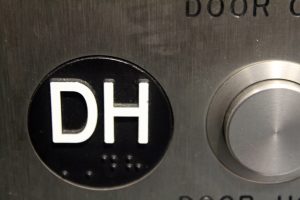
The Special Interest Group in Computing, Information, and Society [SIGCIS]
welcomes submissions to their annual conference: Measure, Model Mix:Computer as Instrument in Philadelphia, Pennsylvania | October 29, 2017
THEME:
Computers are instruments of action. They are made to measure, model, and mix; count and aggregate; save and surveil; pick, parse, and select; and in a world of embedded systems, they are even designed to listen, wait, and relay. In many instances, these actions involve the computational transformation of other social and technological processes—from software that compiles the census to the suites of code assisting in the digital manipulation of sound and image. In other cases, computers register and create information at scales and speeds we have only begun to grasp: artificial intelligence, machine learning, and “big data” in all its local forms. And while often leveraged as democratizing, computers have long been known to amplify structural inequality, map over difference, and jettison “noise” that cannot be translated into a specific form of information.
KEYNOTE SPEAKER
Joanna Radin | Department of History, Yale University
Measure, Model, Mix invites scholars and independent researchers across the disciplinary spectrum to explore the historical conditions of computation. Areas of engagement may include:
- How have bureaucratic, scientific, and aesthetic computational instruments eroded, produced, and reproduced biopolitical and epistemological realities, past and present?
- How can we analyze the relationships between computing and identity categories such as race, gender, sexuality, and ethnicity?
- What are the historical foundations of computing’s contemporary capacity to recognize information?
- How have cultures, subcultures, political systems and identity groups mobilized computational techniques for their own ends?
SUBMISSION FORMATS:
SIGCIS welcomes proposals for individual 15-20 minute papers, 3-4 paper panel proposals, works-in-progress (see below), and non-traditional proposals such as roundtables, software demonstrations, hands-on workshops, etc.
Proposal Due Date: June 30, 2017
WORKS-IN-PROGRESS:
We are pleased to announce a new format for the 2017 SIGCIS Works in Progress (WiP) session. This year, participants will not deliver presentations on their WiP, and there will not be an audience. Instead, the session will serve as a workshop wherein participants will discuss the works in small group sessions.
We invite works in progress—articles, chapters, dissertation prospectuses—of 10,000 words or less (longer works must be selectively edited to meet this length). We especially encourage submissions from graduate students, early career scholars, and scholars who are new to SIGCIS. Authors who submit a WiP will also commit to reading (in advance) two other WiPs, discussing them in a very small group setting, and providing written feedback on one of those WiPs. Scholars who would like to participate in this session without submitting their own WiP are certainly welcome; we ask that they commit to reading (in advance) at least two of the WiPs.
Submissions for WiP only require a 350-400 word abstract, but applicants should plan to circulate their max-10,000-word WiPs no later than October 8, 2017. Scholars who would like to be a reader of WiPs, please email a brief bio or 1-page CV, along with your areas of interest and expertise, to Gerardo Con Diaz [condiaz@ucdavis.edu].
SUBMISSION PROCEDURE:
Submissions are due June 30, 2017. Applicants should download, fill out and follow the instructions on the application cover sheet. All submissions will require:
- 350-400 word abstract (full panel proposals should additionally include a 300-word panel abstract in addition to 3-4 paper abstracts)
- 1-page CV or resume
Questions regarding submission procedure should be sent to Kera Allen [kera.allen@gatech.edu].
Please Note: Individuals already scheduled to participate on the main SHOT program are welcome to submit an additional proposal to our workshop, but should make sure that there is no overlap between the two presentations. However, SIGCIS may choose to give higher priority to submissions from those not already presenting at SHOT.
Details of available awards are at http://www.sigcis.org/travelaward.
SIGCIS welcomes everyone, inclusive of gender identity and expression, sexual orientation, ability, age, appearance, race, nationality or religion. We are committed to fostering a positive, productive space for all participants.





